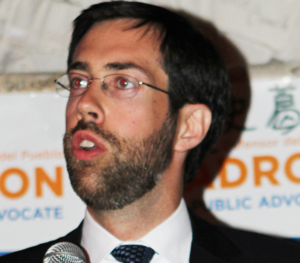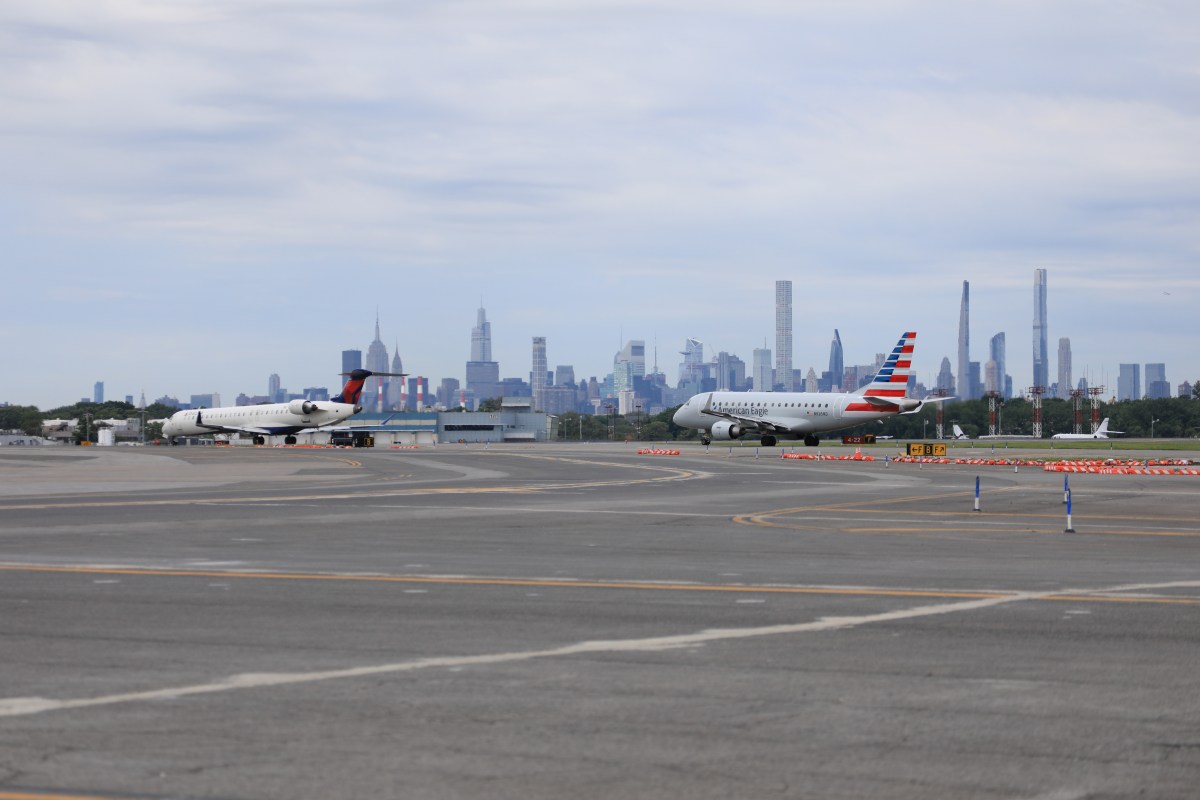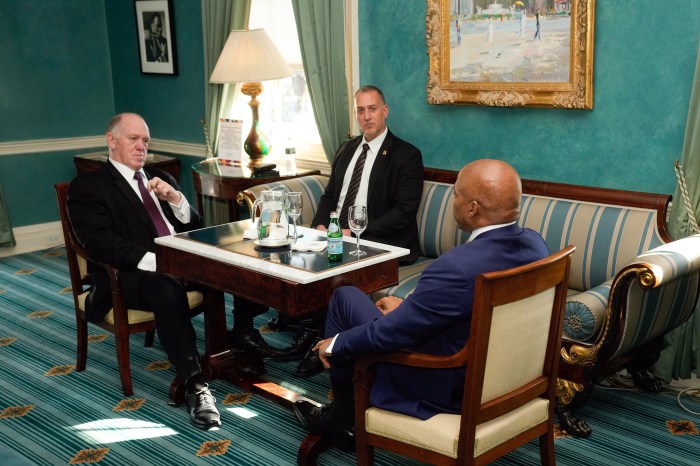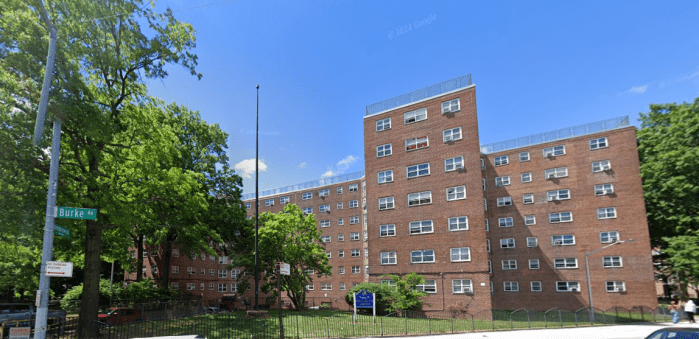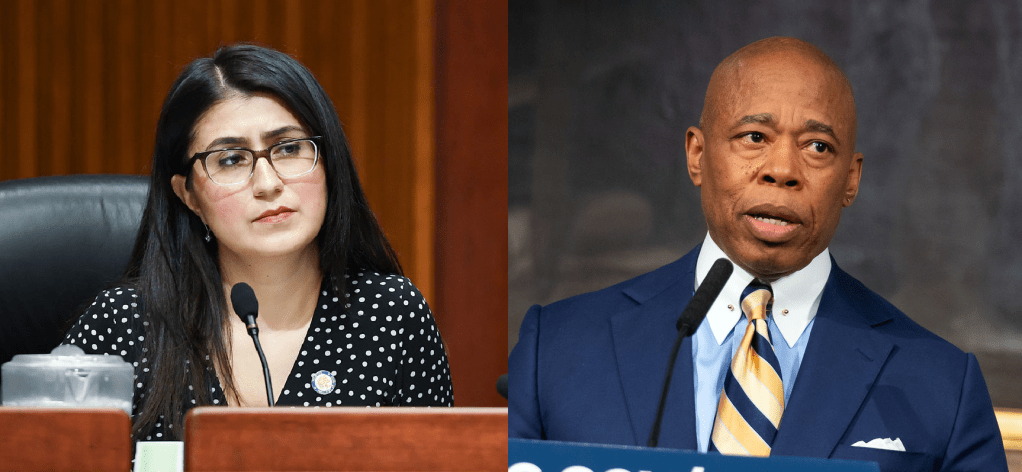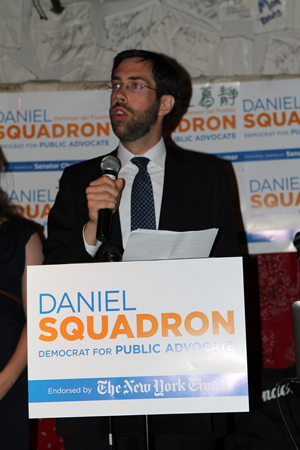
BY GERARD FLYNN | As Public Advocate Bill de Blasio would agree, populist messages have been connecting during this election season.
Media reports that almost half of the city’s residents live in poverty or close to it may have something to do with such hard-times talk, and New Yorkers have been hearing a lot about income inequality and the working poor.
So it wasn’t surprising on primary night to hear similar memes bandied about among supporters of Letita James, a Brooklyn councilmember running for de Blasio’s job, as her supporters watched the race on TV screens at a union hall near Midtown.
“She’s grassroots,” one supporter, Michael Pelias, said. An hour or so later, James was sounding a similar note, as news reports came in that she had nudged several percentage points ahead of state Senator Daniel Squadron in the race for advocate. A kind of city ombudsman, the public advocate seeks to ensure that all New Yorkers receive the city services they deserve and have a voice in shaping their government’s policies.
By night’s end, James had garnered 36 percent of the vote to Squadron’s 33 percent. Both will now face off in three weeks in a runoff election, which is required when no candidate gets 40 percent of the vote.
While there are no Republican candidates in the race, five Democrats filled the primary election ballot. The candidates in Tuesday’s election also included Columbia University professor Catherine Guerriero, former Deputy Public Advocate Reshma Saujani and Sidique Wai, a civilian employee for the New York Police Department.
After the news came in, James chimed, “Money power versus people power.” She danced her way triumphantly through the crowd of well-wishers, as Whitney Houston’s “I’m Every Woman” blasted on the loudspeakers overhead. Down at a tavern on W 26th St., Squadron’s supporters heaped praise on their candidate, who got high marks for his role in helping out following Hurricane Sandy.
Peter Hort, who held fundraisers in his home for Squadron, described him as “very responsive” to constituent needs and said Squadron “stepped up as a leader” during the superstorm.
As TV news reports suggested a looming de Blasio victory, Hort said he had chosen Christine Quinn for mayor.
de Blasio’s message of “class warfare” only caused division in the city, he said. He said that while de Blasio’s ideas about income inequality might be just rhetoric, he feared there is “a good chance that he will still follow through.”
But even as James danced and mingled in Midtown, behind the jubilant scenes doubts lingered. Squadron had outpaced her in campaign contributions, TV spots and had more name recognition, Pelias said.
A powerful endorsement for Squadron from Senator Chuck Schumer doesn’t help, he added, while also voicing his suspicions that the New York Democratic “political machine” may be grooming Squadron for higher calling — perhaps a congressional seat.
Including public matching funds, Campaign Finance Board records show that Squadron led the field and has raised slightly more than $3 million to James’s $1.6 million.
The C.F.B. has reportedly ruled in favor of Squadron’s request to allow additional fundraising in the event of a two-person runoff — good news for him, since campaign finance records show he is down to $500,000. Campaign records show James with around $900,000.
With such a small staff and a limited budget of $2.1 million, and despite calls from Mayor Bloomberg to abolish the office altogether, one may wonder why public advocate merits such intense interest from city politicians.
The answer may have something to do with the career directions public advocates have followed since the office was created in 1993.
The first public advocate, Mark Green, like de Blasio, used the office as a stepping stone to run for mayor.
On election night before the polls had closed, Roanna Judelson, a member of local political organization CoDA (Coalition for a District Alternative) was walking near a polling site by Tompkins Square.
She wore a placard listing everyone she voted for in the election, including de Blasio and James. When asked to explain James before Squadron, she said the Brooklyn councilmember is a “fighter” and stands up for “good issues,” but she didn’t immediately mention any specific ones.



